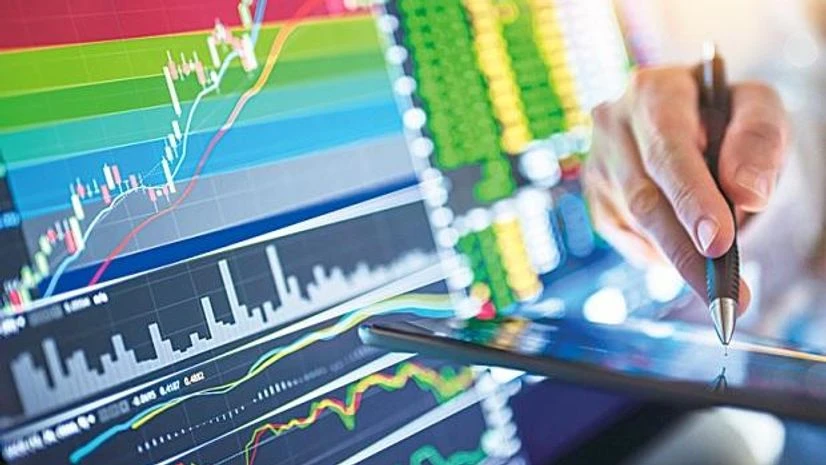European stocks rose on Tuesday while Wall Street shares were mixed after another record-setting open on Wall Street as investors shrugged off concerns over Omicron-driven travel disruptions and store closures.
Asset classes from oil to equities have clawed back losses from late November, when the Omicron variant of COVID-19 sent investors scurrying for safety. A delay in Britain and France on imposing more COVID curbs before year-end also excited investors. As the worst fears over the impact of the variant have subsided, investors have returned to risk assets.
The MSCI world equities index rose 0.07%, hovering near a record high hit last month, and the pan-European STOXX 600 rose 0.6% to end the session at a five-week high, eyeing its best month since March this year.
The S&P 500 edged lower after touching a record intraday high as a four-day rally lost steam.
"This is a holiday-shortened week. So daily movements will likely be exaggerated because of a low relative volume," said Sam Stovall, chief investment strategist at CFRA Research in New York.
Also Read
The Dow Jones Industrial Average rose 88.94 points, or 0.25%, to 36,391.32, the S&P 500 lost 5.51 points, or 0.12%, to 4,785.68 and the Nasdaq Composite dropped 83.13 points, or 0.52%, to 15,788.13 by 2:29 p.m. EST (1929 GMT).
"The latest rebound in risky assets was activated last week by new reports confirming that the Omicron coronavirus variant, although more transmissible... leads to fewer hospitalizations and deaths," said Charalambos Pissouros, head of research at Cyprus-based brokerage JFD Group.
Japan's Nikkei hit a one-month high and MSCI's broadest index of Asia-Pacific shares outside Japan gained 0.5%.
China reported 209 new confirmed coronavirus cases for Dec. 27, up from 200 a day earlier, mostly in the northwestern province of Shaanxi, where Xian, the provincial capital, is in lockdown.
In Europe, the British government said England would not get any new COVID-19 restrictions before the end of 2021, while the French government said it would tighten measures, though there will be no curfew for New Year's Eve and schools will reopen as planned in early January.
The MSCI world equities index is up more than 17% so far this year, and heading into 2022 investors are wary of risks stemming from rising price pressures, slowing corporate earnings growth and the likelihood of a rate hike cycle in the U.S..
"Money growth will slow in 2022, but the market strongly doubts that the ECB and the Fed are willing to truly tighten financial conditions," said Arne Petimezas, analyst at AFS Group in Amsterdam. "They now face a trade-off between controlling inflation or keeping this party going".
Oil prices extended gains on Tuesday, with Brent crude trading near $80 a barrel despite the rapid spread of the Omicron coronavirus variant, supported by supply outages and expectations that U.S. inventories fell last week. [O/R]
Brent crude rose 0.66%, to $79.12 a barrel as U.S. West Texas Intermediate (WTI) crude climbed 0.74%, to $76.13.
Elsewhere in commodities, gold retreated after hitting a one-month high on inflation worries and spot palladium recovered following a drop of more than 3%.
The dollar index was up 0.28% against a basket of other major currencies http://tmsnrt.rs/2egbfVh.
Bitcoin dropped 6.19%.
In debt markets, two-year Treasury yields hit almost two-year highs, following tepid demand for an auction of the notes on Monday, while longer-dated yields dipped but held within their recent ranges in light trading.
Five-year Treasury yields were little changed after auction.[US/]
U.S. junk spreads, the premium investors demand to hold high-yield corporate debt over risk-free Treasuries, fell to 302 basis points as of late Monday, the tightest since July 2007, based on the ICE BofA U.S. High Yield Index .MERH0A0.
(Reporting by Katanga Johnson in Washington, Danilo Masoni in Milan and Alun John in Hong Kong;Additional reporting by Echo WangWriting by Chris Prentice;Editing by Alexander Smith, Dan Grebler and Chizu Nomiyama)
(Only the headline and picture of this report may have been reworked by the Business Standard staff; the rest of the content is auto-generated from a syndicated feed.)

)
